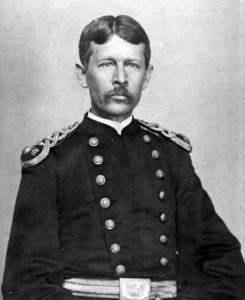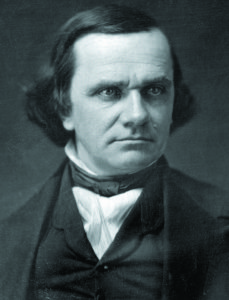

We have a long history of celebrating our heroes. It defines who we are and what we want to be. Right now our greatest hero might be a Belgian Malinois canine who tracked down and cornered the most wanted terrorist in the entire world, Al-Baghdadi. You might think that we, with our superior intelligence, would be able to sniff out that stinking terrorist better than a dog. But the dog’s nose is far superior to ours. And with his unwavering loyalty, he is the perfect ally in the fight against terrorism. I have seen similar dogs sniffing for explosives at Reagan/National Airport in Washington, DC or sniffing for contraband at US Customs checkpoints. But none reach the status of a military dog that is trained to do his job under extremely stressful circumstances.
Under cover of darkness, the dog flew with his handler hundreds of miles across Syria through enemy territory, taking ground fire until his helicopter landed near the compound where Al-Baghdadi was thought to be staying. After US forces allowed those who wished to surrender out of the compound unharmed, American soldiers blew holes in the compound walls, killed a number of defenders both inside and outside the compound, and entered with the dog. He knew exactly who he was to track, because US forces had a piece of Al-Baghdadi’s clothing. The dog led soldiers to a dead end tunnel where Al-Baghdadi was cowering with three of his children as human shields. Rather than be captured, Al-Baghdadi blew himself up, killing the children as well. The dog sustained what were termed ‘minor injuries.’
President Trump has not yet released the name of this dog, but as Bret Baier said on Fox News, he surely responds to “Good Dog.”
The Chairman of the Joint Chiefs of Staff, General Mark Milley, said the dog “performed a tremendous service.” President Trump tweeted a photo-shopped picture, showing him awarding a medal to the dog.
This canine is a part of the US Army’s 1st Special Forces Operational Detachment-Delta (Airborne), a highly secretive group commonly called the “Delta Force.” The Defense Department tightly controls information about Delta Force and its activities; unless the unit is part of a major operation like the take-down of Al-Baghdadi. Delta operators are granted an enormous flexibility and autonomy during military operations overseas. To conceal their identities, soldiers rarely wear uniforms both on and off duty. When military uniforms are worn, they lack markings, surnames, or branch names. Civilian hair styles and beards are allowed to enable members to blend in and avoid recognition as military personnel, let alone Special Forces.
Locally, we have one famous member of the Army Special Forces Green Berets, Lieutenant Colonel Brian Boquist. He is now retired from the US Army and goes by the name Oregon State Senator Brian Boquist. Boquist led the Republican action earlier this year to deny Democrats a quorum to pass their infamous Carbon Tax. Republican State Senators followed him to Idaho, where the Oregon State Police could not touch them, famously telling the police to send bachelors to apprehend him and come heavily armed! Boquist is a hero to many of us for doing that.
Above and Beyond the Call of Duty

America has no shortage of heroes, men and women who have done the right thing under extremely stressful conditions. Few other countries can claim the level of heroism that Americans have displayed over more than two centuries. They range from General George Washington, during the Revolutionary War to General Ulysses S. Grant during the Civil War to many less well known heroes like Lieutenant Bernard J.D. Irwin and Major Walter Reed, both army doctors. Young Lieutenant Irwin led a hopelessly out-gunned group of 14 soldiers to rescue 60 soldiers trapped by the Apache Chief Cochise. By pretending that they were a much larger rescue party, Irwin convinced Cochise to retreat. It was a classic military maneuver by a man trained only as a physician.
For his efforts, Irwin was awarded a Congressional Medal of Honor, the first incident in American military history for which the medal was awarded. The Irish-born physician went on to become a Major General. His son, George LeRoy Irwin served in World War 1 and became a Major General. His grandson, Stafford Le Roy Irwin served in World War 2 and became a Lieutenant General.

Major Walter Reed was a hero of a different sort, rescuing an Indian girl whom he later adopted and seeing to the health of both US Army personnel and the Indians they sometimes fought. But his greatest achievement was in medicine where he established the cause of Yellow Fever, a disease that was rampant at the time along the Potomac and among soldiers in the Spanish-American War. Unlike Typhoid Fever which he showed was caused by unsanitary conditions involving contact with sewage, Yellow Fever had an entirely different vector: mosquitoes.
Walter Reed’s work gave great impetus to the new field of epidemiology. It also allowed resumption of work on the Panama Canal that had been halted by Malaria and Yellow Fever. By controlling the mosquitoes that carried both diseases, casualties were reduced. Among his many honors, the Army named its premier medical center in his memory, today called the Walter Reed National Military Medical Center in Bethesda, Maryland.
In two cases, exceptional heroism was handed down from father to son. Both Lieutenant General Arthur MacArthur and his son General of the Army Douglas MacArthur were awarded this nation’s highest military honor, as were President Theodore Roosevelt and his son Brigadier General Theodore Roosevelt, Jr.
We should probably note that Douglas MacArthur was summarily fired by President Truman, a fact that might tarnish a brave man’s legacy in today’s world, where we incorrectly expect our heroes to be perfect people. They are not. We remember them for their exceptional service to this country.

Exceptional service does not always come in the military realm. On the South Side of Chicago in a black neighborhood, there stands a lonely statue of Stephen A. Douglas, the “Little Giant’ who opposed Abraham Lincoln for the Presidency of the United States in 1860. Although he had bested Lincoln to become a United States Senator from Illinois in 1858, Douglas found himself behind in the race for President and the country coming apart at the seams over the issue of slavery. Republicans opposed slavery, while Democrats advocated for “popular sovereignty” whereby individual states could retain slavery, if they desired (an original concept of ‘Choice’). Recognizing that secession was a real possibility, Douglas urged his followers to remain loyal to the nation and to support Mr. Lincoln.
In today’s world, Douglas would probably be vilified for his support of slavery, when he should be celebrated for his much stronger support of his country. He understood what few Democrats understand today, political differences do not sanction all out war against political opponents.
Our heroes are ultimately those who make this nation stronger, often with great bravery and great personal sacrifice. We celebrate each and every one of them, even a canine known as “Good Dog.”
Gordon J. Fulks lives in Corbett and can be reached at gordonfulks@hotmail.com. He holds a doctorate in physics from the University of Chicago’s Laboratory for Astrophysics and Space Research and has no conflicts of interest on this subject.
No Comments
Leave a comment Cancel